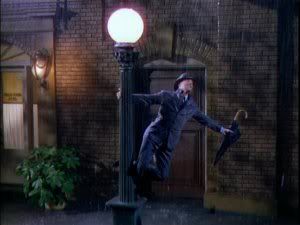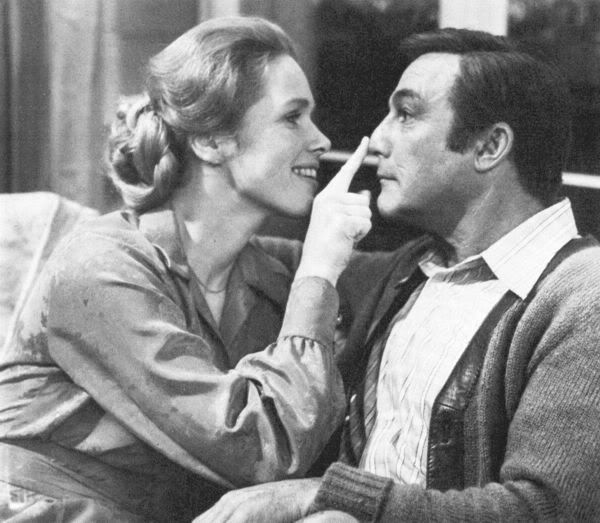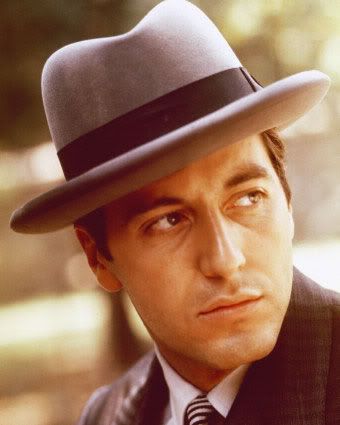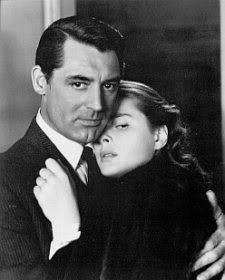Thursday, September 15, 2005
Monday, September 12, 2005

10-Singin' in the Rain.Director:Stanley Donen and Gene Kelly.Cast:Gene Kelly,Donald O'Connor,Debbie Reynolds,Jean Hagen and Cyd Charisse.
"One of this movie's pleasures is that it's really about something. Of course it's about romance, as most musicals are, but it's also about the film industry in a period of dangerous transition. The movie simplifies the changeover from silents to talkies, but doesn't falsify it. Yes, cameras were housed in soundproof booths, and microphones were hidden almost in plain view. And, yes, preview audiences did laugh when they first heard the voices of some famous stars; Garbo Talks!'' the ads promised, but her *co-star, John Gilbert, would have been better off keeping his mouth shut. The movie opens and closes at sneak previews, has sequences on sound stages and in dubbing studios, and kids the way the studios manufactured romances between their stars."
-Roger Ebert- (*Garbo's first talkie was "Anna Christie" and John Gilbert does not star in it.)
Tuesday, September 06, 2005

9-Persona .Director:Ingmar Bergman. Cast: Bibi Anderson and Liv Ullmann.
Art is a private thing, the artist makes it for himself; a comprehensible work is the product of a journalist. We need works that are strong, straight, precise, and forever beyond understanding.
- Kenneth Tynan-
-----
"The human face. No one draws so close to it as Bergman does. In his recent films there is nothing more than mouths talking, ears listening, eyes expressing curiosity, hunger, panic."
- Francois Truffaut-
------
“The cinema is not a craft. It is an art . . . One is always alone on the set as before a blank page. And for Bergman, to be alone means to ask questions. And to make films means to answer them. Nothing could be more classically romantic.”
-Jean-Luc Godard-
-----
"Today I feel that in Persona—and later in Cries and Whispers—I had gone as far as I could go. And that in these two instances, when working in total freedom, I touched wordless secrets that only the cinema can discover."
-Ingmar Bergman-

Liv Ullmann & Gene Kelly-not singing or dancing...yet.
---------------------
"I'm enormously fascinated by her. I find her an immensely suggestive actress. She has a long stage career behind her. I've worked with her in the theatre. I see various roles mirrored in her face. It's a face which can lend itself to an immense number of different roles."
-Ingmar Bergman-on Liv Ullmann (1968)
--------
"(Bergman) sits very close to the camera. You feel him very much and if he is not close to the camera, you tend to act towards him. He always is very, very close to the camera and he is terribly inspiring. I don't know what he is doing, but it is something that makes you want to give everything you have. You feel that there is somebody who is really there."
-Liv Ullmann-
--------
"Bibi Andersson is a close friend of mine—a lovely and extremely talented actress. She is totally oriented toward reality, always needing motives for what she does....An actress can do something unsuited to her and make it believable, but Bibi Andersson is so integrated a person that, for her, it is impossible to play something she doesn't believe in."
-Ingmar Bergman-
------
"It was the knowledge of a person that inspired him [Bergman] to write in a certain direction. Even if it was unconscious, I'm sure it was playing a big part. If he was at work on something and knew that one of his actress friends had a similar problem or attitude, he would use her. When I was reading a script, I tried to figure out what side of me he was trying to use now, or what he had seen, or what it was that he did not want. You can sometimes be very frustrated if you feel the part does not do you justice. When I read Persona I wasn't flattered. I didn't understand why I had to play this sort of insecure, weak personality when I was struggling so hard to be sure of myself and to cover up my insecurities. I realized that he was totally aware of my personality. I was better off just trying to deliver that. It's a good way to know oneself. Sometimes I think artists instinctively are very good psychiatrists. I also think all parts have to be based on oneself, otherwise they will never come across."
-Bibi Andersson-
------
"I'm proud of the films(Wild Strawberries and The Seventh Seal), but not with regard to myself. 'Persona', on the other hand, I'm still proud of. Each time I see it, I know I accomplished what I set out to do as an actress, that I created a person."
-Bibi Andersson-

8- Ikiru . Director:Akira Kurosawa. cast:Takashi Shimura,Nobuo Kaneko and Shinichi Himori.
"Ikiru is a cinematic expression of modern existentialist thought. It consists of a restrained affirmation within the context of a giant negation. What it says in starkly lucid terms is that ‘life’ is meaningless when everything is said and done; at the same time one man’s life can acquire meaning when he undertakes to perform some task that to him is meaningful. What everyone else thinks about that man’s life is utterly beside the point, even ludicrous. The meaning of his life is what he commits the meaning of his life to be. There is nothing else.”
- Richard Brown-
-----
" Sometimes I think of my death,I think of ceasing to be . . . and it is from these thoughts that Ikiru came "
-Akira Kurosawa-
-------
"The great strength of the picture is the total seriousness and importance of what Kurosawa has to say: to live is to love; the rest is cancer"
-TIME magazine-1960-
-----
Thursday, September 01, 2005

7-The Godfather & The Godfather part II. Director:Francis Ford Coppola. Cast:Al Pacino,Marlon Brando,Robert Duvall,John Cazale,Talia Shire,Diane Keaton,James Caan and Robert De Niro.
"(Cinema)combines so many other art forms, as do theater and opera, but the essence of cinema is editing. It's the combination of what can be extraordinary images, images of people during emotional moments, or just images in a general sense, but put together in a kind of alchemy. A number of images put together a certain way become something quite above and beyond what any of them are individually.
This, of course, was one of the elements of the Eisenstein film that was so exciting. How the editing was able to take -- that's always fascinating -- take this, and this, and put it together, and have something come out that was neither of those two things. Of course, the sense of rhythm that editing can do! I was struck, I remember, on 'Ten Days That Shook The World', how although it was a silent film, there were sequences where you actually almost could hear the machine guns firing, because of the way it was edited. So it's a form of alchemy, of magic, that is very appealing. I think cinema, movies, and magic have always been closely associated. Because the very earliest people who made film were magicians. One of the aspects of it was the idea of an illusion, a magical illusion, in the early days of movies.
Magicians were among the first to experiment with cinema. Some of the early pioneers, like Meliès, were magicians who used cinema to create illusions. Cinema always had this ability to create some kind of magic, as did the theater for me, through lighting. To use technology to create magic is what appealed to me, I think.
-Francis Ford Coppola-
-----
"The Godfather was a very unappreciated movie when we were making it. They were very unhappy with it. They didn't like the cast. They didn't like the way I was shooting it. I was always on the verge of getting fired. So it was an extremely nightmarish experience. I had two little kids, and the third one was born during that. We lived in a little apartment, and I was basically frightened that they didn't like it. They had as much as said that, so when it was all over I wasn't at all confident that it was going to be successful, and that I'd ever get another job."
-Francis Ford Coppola-
-------
"We were raised in an Italian-American household, although we didn't speak Italian in the house. My father was a musician, so we were very proud of being Italian, and had Italian music. We ate Italian food, and pizza, when no one knew what pizza was really.
But I remember very vividly, when I was a little boy, my mother would say to me, "America is the greatest country in the world." And there was a sense, as Italian-Americans, that it was a great privilege to live in America and be Americans.
Most Italians who came to this country are, you know, very patriotic. And what that meant was just that there was this exciting possibility that if you worked real hard, and you loved something, that you could become successful, and wouldn't be held down, due to who your family was and what have you. And certainly, in my case, I found that to be true. I became quite successful very young, and it was mainly because I was -- I would have to say -- because I was so enthusiastic and I just worked so hard at it.
-Francis Ford Coppola-


